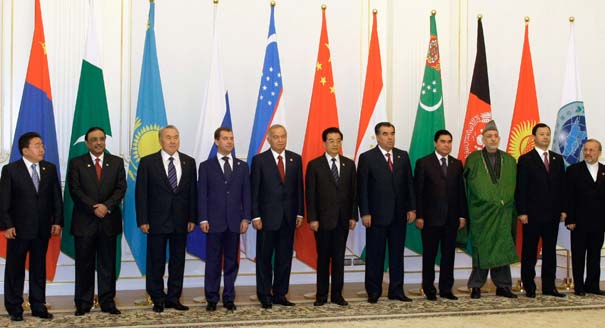During his tour of Asia earlier this month, U.S. President Barack Obama made clear that the United States is ready to tackle security challenges in the region. Obama did not choose the easy path, which would have been to cut a deal with China. He subscribed to a long-term strategy aimed at preventing China from turning its dynamism into an aggressive foreign policy. The United States is seemingly dedicated to building a regional framework that helps to keep China’s rise peaceful.
Europe is watching Washington’s turn toward Asia with a wary―if not outright jealous―gaze. Europeans are wracked with confusion and self-doubt: What can Asia offer that Europe can’t? Has the United States lost interest in Europe? Does the “Pacific century”―announced by U.S. Secretary of State Hillary Clinton―mean that America does not care for Europe anymore? Is this yet another sign of Europe’s decline? Instead of feeling self-pity, however, Europeans should recognize that Washington’s move toward Asia is in their interest and put their weight behind it.
The alternative to U.S. engagement in the Asia-Pacific region―disinterest or even disengagement―would go against Europe’s clear interest in regional stability. American disengagement would leave behind a vacuum that China would try to fill. In response, China’s neighbors―among them powerful rivals like Japan and India, as well as medium-sized powers like Australia and Indonesia―would try to catch up militarily and would likely build anti-Chinese coalitions. Like Germany in the early twentieth century, China would feel encircled, and might try to free itself from this pressure through military means. This would be a nightmare not only for Asia, but for the entire globalized world.
U.S. engagement in the region is not without risk, but America is the only outside player that can offer credible security guarantees to China’s nervous neighbors. The United States is a military superpower, is trusted by many governments in the region, and has been deeply involved in the regional security architecture since the end of the Second World War. Moreover, Washington is being pushed by regional powers such as the Philippines, Australia, and Japan to once again assume the lead in Asia-Pacific security matters. Ultimately, however, it is Beijing’s recent behavior in territorial conflicts―particularly in the South China Sea―that forces Washington to define the “Pacific century” in military, as well as economic, terms.
By raising its profile as a regional security provider, America is performing a public service that also serves Europe’s interest. A serious conflict between China and its neighbors would be a disaster for the European economy. However, neither the European Union nor individual member states are in a position to act as providers of security and stability in the Asia-Pacific region. Europe must therefore rely on the United States to do whatever is necessary to manage the regional geopolitics of China’s rise.
That doesn’t mean that Europe must remain a spectator. European relations with the region have, until now, focused mainly on China and been driven by short-term economic gains. That is fine for business, but governments must do more to ensure that the underlying framework of European relations with the region―on which business depends―is solid. Europe must complement the economic relations it has developed with a strategic approach toward the Asia-Pacific region.
European and American interests in the region are broadly the same: long-term political stability, economic growth, and the further integration of China and its neighbors into the institutions of the liberal world order. A common European strategic approach, coupled with sustained support for Washington’s efforts in the Asia-Pacific region, is not only in the West’s own interests. It is also in China’s long-term interest, as it reduces the likelihood of conflicts and clashes. China may one day be ready to challenge U.S. supremacy, but if American power is backed by that of Europe, Beijing will be far more likely to seek compromise.
Europe’s mixture of greed―prioritizing short-term economic gains in dealing with China―and self-pity―over its perceived loss of global stature―must be replaced by a strategic approach both in European relations with the United States and in relations with China and its neighbors. Given the significance of the region, it is striking that at the recent EU-U.S. summit, the Asia-Pacific region was only a marginal talking point. In fact, both partners have yet to realize that only in concert can they achieve their goals in the region.
In a recent speech, European Council President Herman Van Rompuy called for “higher political attention” in Europe to security in the Asia-Pacific region. This is an issue where the European External Action Service (EEAS), the EU’s new diplomatic service, could indeed prove its worth. The EEAS could develop an umbrella strategy, bringing all key stakeholders from both sides of the Atlantic to the table. The benefits of a common approach are obvious, and the potential alternatives―an arms race and conflict in the region―look rather nasty.
Ulrich Speck is an independent foreign policy analyst and commentator and editor of the website Global Europe (www.globeurope.com).









